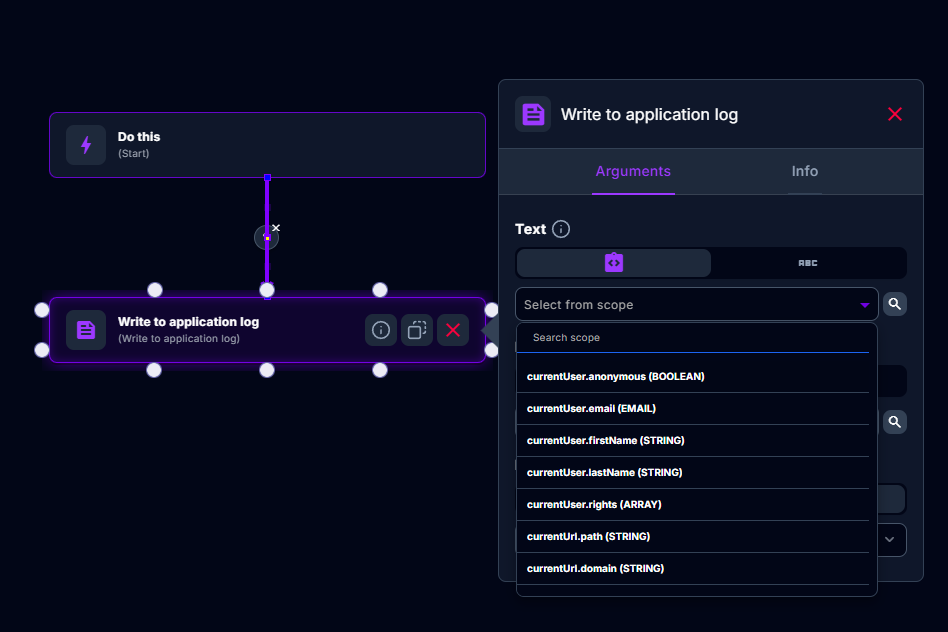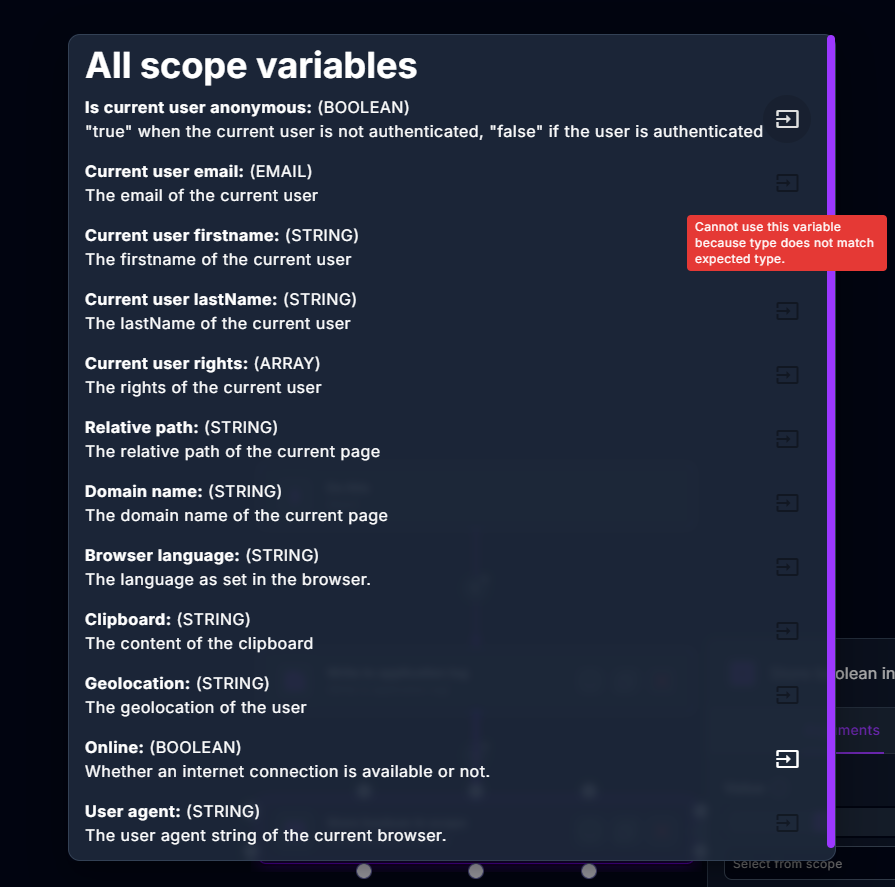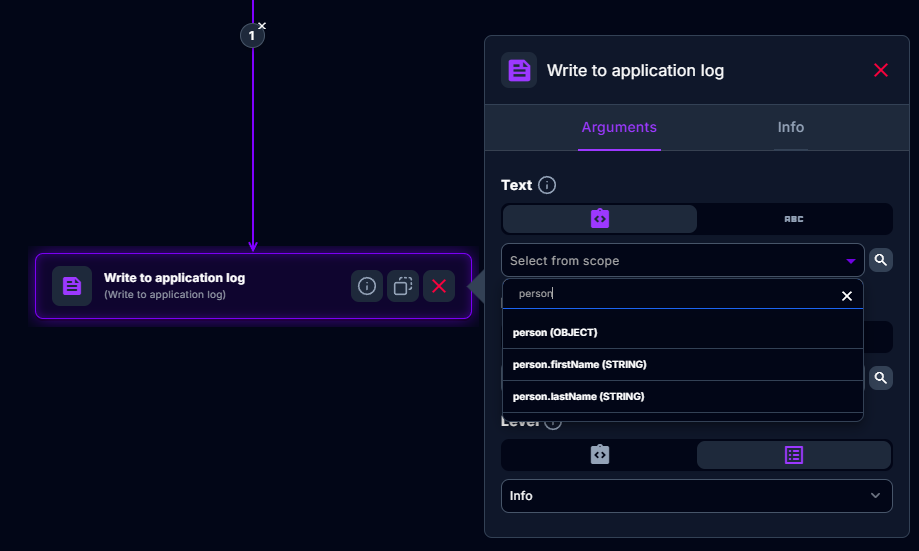Variable scope
Variable
A variable is simply a named unit of data that is assigned a value. Its value can change, but its name will stay the same.
As detailed on each of the Function pages, many functions will create a variable at the end of their execution. For example, the "Get data item" stores the data it retrieves from the database in a variable. You may need this variable as an argument in later function calls. Variables created in any action reside in the "Variable scope". This scope is unique per action execution, meaning it cannot be shared by actions or action executions.
You can, however share data between actions by using the Database or Parameters.
These variables can then be used in other function calls. They must be provided in the Arguments tab of an function instance. Select the "Scope" input selection & click the input field to start searching through all available variables on the variable scope.

You can only see variables that are available for you to use in this argument of this certain Function instance. There are 2 parameters taken into account here:
- The fact that the variable is available either by being a default variable or by being created on the path from the "Start" block to the Function instance you are editing.
- If the variables type matches the type of the argument that you are editing. Types can match exactly or if there is a possibility to convert from one type to another for example: Number -> Text.
You can view the entire list of available parameters by clicking the "scope" icon next to the input field:

On this screen you are able to see why some variables cannot be used for the argument that you are editing.
Complex values on the scope
Complex values such as "Data" that are placed on the scope allow for deeper access through the scope.
For example. You fetch a piece of data from the built in database that contains the first name & last name of a person. You will have access to the fields of this data by using the scope in the form of:
[DATA NAME].[ATTRIBUTE NAME]
In our case this could by
person.firstName

Default variables in the scope
By default, the scope contains the following variables:
| Variable | Description |
|---|---|
| currentUser.userId: Current user id | The id of the current user. |
| currentUser.firstName: Current user firstname | The first name of the current user. |
| currentUser.lastName: Current user lastName | The last name of the current user. |
| currentUser.anonymous | "true" when the current user is not authenticated, "false" if the user is authenticated |
| currentUser.email | The email of the current user |
| currentUser.rights | The rights of the current user |
| currentUrl.path | The relative path of the current page |
| currentUrl.domain | The domain name of the current page |
| browser.language | The language as set in the browser. |
| browser.clipboard | The content of the clipboard |
| browser.geolocation | The geolocation of the user |
| browser.online | Whether an internet connection is available or not. |
| browser.userAgent | The user agent string of the current browser. |